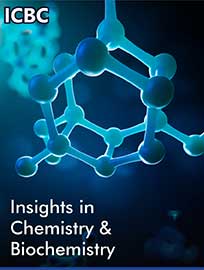 Research Article
Research Article
Antitumor Activity of Novel Azole compound against Ehrlich Ascites Carcinoma in Swiss Albino Mice
Fawzia Zakaria ELAblack1*, Usama Bhgat Elgazzar2 and Ahmed hashem1
1Department Organic Chemistry, Damietta University, Egypt
1Department Medical Biochemistry, Al-Azhar University, Egypt
Fawzia Zakaria ELAblack, Organic chemistry Department, Faculty of Science, Damietta University, Egypt.
Received Date: May 15, 2020; Published Date: June 23, 2020
Abstract
Background: Thiazole derivatives exhibited satisfactory antitumor activity towards various types of cancer.
Purpose: The present study was designed to evaluate the bioactivity of new synthesized Thiazole derivative against animal carcinogenesis “Ehrlich carcinoma)” (EAC) in mice through antioxidant status and regulation of apoptosis process.
Methods: To evaluate these effects we have explored the Thiazole effect on the survival time of tumor-bearing animals, tumor weight, count of viable EAC cells, apoptosis induction, antioxidant activity, liver enzymes and renal function compared to Cisplatin (CDDP) as a standard anticancer drug.
Results: Thiazole demonstrated an inhibitory effect on Ehrlich ascites cells in vivo by increasing in life span of Ehrlich–bearing mice, decrease in tumor volume and count of viable cells compared to control. Also revealed that Thiazole directed Ehrlich cells toward apoptosis by up regulation of BAX and down regulation of Bcl2 and PARP compared to Positive control groups. Treatment with Azole significantly decreased MDA level Meanwhile GSH and SOD Activity were significantly increased Compared to positive control group. While this compound showed hepatotoxicity which indicated that by increases in ALT and AST activities, and slight changes in kidney functions. The anti-tumor mechanisms may be mediated by up regulation of BAX and down regulation of Bcl2 and PARP compared to Positive control group.
Conclusion: Thiazole is a unique template that has anti-tumor mechanisms may be mediated by preventing oxidative damage, induction of apoptosis and improved animal chances of survival but clinical trials will be needed for development of Thiazole derivatives as cancer therapy.
-
Fawzia Zakaria ELAblack, Usama Bhgat Elgazzar, Ahmed hashem. Antitumor Activity of Novel Azole compound against Ehrlich Ascites Carcinoma in Swiss Albino Mice. Insi in Chem & Biochem. 1(2): 2020. ICBC. MS.ID.000510.
-

This work is licensed under a Creative Commons Attribution-NonCommercial 4.0 International License.






